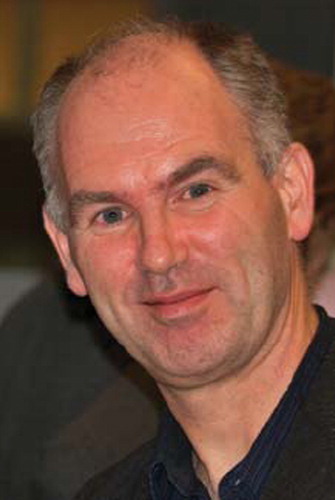In this first issue of 2010, the European Journal of General Practice continues its series on the ‘Research Agenda for General Practice/Family Medicine and Primary Health Care in Europe’. Furthermore, we have several contributions on ‘multimorbidity’. Finally, various international organisations present themselves in this issue.
In his contribution, André Knottnerus comments on the first part of the European Research Agenda for General Practice/Family Medicine and Primary Health Care (published in the previous issue of this Journal). He discusses some choices the authors have made regarding perspective and methodology, and he suggests additional options. Eva Hummers-Pradier et al. present the second part of the Research Agenda, on the general practitioner's core competencies ‘Primary Care Management’ and ‘Community Orientation’. After a discussion of the results of their literature review, they formulate several topics that need further study. In a Comment, Larry Green reflects on this part of the Research Agenda. I would like to highlight three elements of his argument: the challenge to develop measures for ‘comprehensiveness’; the suggestion of adding an approach to our research arsenal that is called ‘community-based participatory research’; and the recognition of ‘integration of care’ as the ‘core primary care management challenge, ripe for world-wide research’.
Indeed, integration of care is very important in dealing with multimorbidity, one of the major challenges for primary care and primary care research for the next decade. Knowing and taking into account the patient's own priorities is another important perspective. Carsten Kruschinsky et al. demonstrate the importance of patient-centred communication on dizziness complaints in elderly patients. Ulrike Junius-Walker et al. report of a workshop among GPs on health and treatment priorities in patients with multimorbidity, held during the EGPRN conference in Dubrovnik, in October 2009. ‘Multimorbidity’ was the theme of that conference and the abstracts of that meeting are published in this issue. The thematic papers report of ongoing studies from Croatia, Germany, Ireland, The Netherlands, Slovenia, Spain and Sweden, covering a variety of perspectives on ‘multimorbidity’. The freestanding papers represent many chapters of the ICPC, like cardiovascular and metabolic diseases, psychiatry (depression, anxiety, and addiction), neurology (dizziness!), and musculoskeletal problems. Furthermore, several contributions address the issue of dealing with ‘the patient's perspective’, in consultations and in medical education.
One of the aims of this Journal is ‘to facilitate the communication between the members of WONCA Europe, its international network organisations and special interest groups, national colleges and societies of GP/FM, academic departments and institutes, research networks, and individuals involved in research and teaching in GP/FM/PHC’. For that purpose, we have created a ‘Communication & Information’ section. We have invited various organisations to write a regular report on their activities for this Journal. For this issue, many of them were capable of writing a short contribution on very short notice. I thank them for that. For the near future, I hope for a structural flow of ‘news’ from many groups and individuals, to represent the dynamics of our profession in Europe. Furthermore, the European Journal of General Practice would like to invite its readers to send us announcements as well as reports of scientific conferences, workshops, (research) courses and other activities for GPs/family physicians, and primary care researchers or teachers. We also welcome input for our ‘Calendar of Events’.
In my previous Editorial, I expressed the hope that many authors and readers would agree that making this Journal a success is a collective responsibility of us all. A crucial factor for success is the quality of our peer review. We would like to acknowledge the work of our colleagues who have reviewed for this Journal in 2009. Their names are listed on the final pages of this issue.

